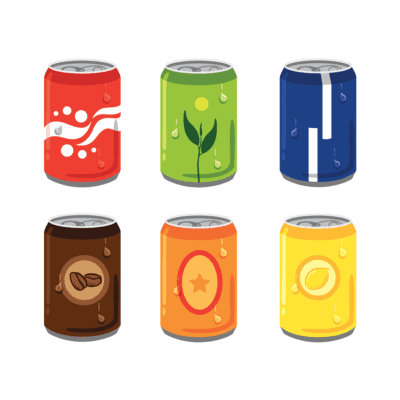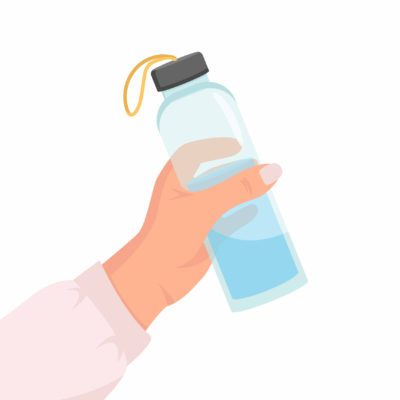It’s important to prepare and fuel yourself with proper nutrition for all the energy you’re going to be expending in your workout! Let’s start with the don’ts.
TABLE OF CONTENTS
DON’T…
Eat a big meal.
Sounds obvious, right? However, the reason for this goes beyond just preventing a stomachache after your workout. When you eat a heavy meal, a lot of your blood travels to the smooth muscles of your digestive system, like your stomach and small intestine, in order to carry out the digestive process. With a lot of your blood being used by your digestive muscles, little blood is available for the working muscles you’re using when exercising such as your quads or biceps. Without a sufficient amount of blood going to the muscles you’re lifting with, you’re not going to have an efficient workout. The very reason for this is because blood needs to carry oxygen and glucose (energy) to the muscles in order that they may contract. Who doesn’t want an efficient workout? If you can’t resist, just allow a few hours for digestion before any vigorous training.

Drink Coffee
Yes, coffee might sound like a great idea to give you a boost of energy for an upcoming workout with all the caffeine it contains, however, you also want to be fully hydrated. While it is still a debated topic in recent studies whether or not caffeine poses dehydration, caffeine is still a diuretic which means it can cause you to urinate more, losing more fluid. With this being said, the risk of dehydration is more likely with greater amounts of caffeine intake, but there are definitely better alternatives to gain energy without the risk of dehydration. Look at the DOs below for the best energy substitute before a workout!
Eat foods that cause bloating.
Foods that can cause bloating include beans cabbage, broccoli, onions, and carbonated drinks.
DO…
Eat carbs for short or high-intensity workouts.

Carbs are the quickest source of energy for your body making them ideal to consume before your workout. Not only are carbs easily digestible compared to protein and fat, they also top off your glycogen stores which are the storage form of glucose (sugar) that your muscles need and use for fuel. However, because they are easily digestible for fast energy, they don’t last long which is why they’re ideal for short or high-intensity workouts.
Healthy examples of carbs: fruit, bagels, sports drinks, milk, yogurt. Just try avoiding fibers and whole grains right before a workout because they digest slowly.
Eat fats for long or moderate/low-intensity workouts.
While carbs provide quick energy, fats act as long-term energy storage. Each gram of fat contains about twice as much energy as carbs or protein which contributes to why it lasts longer; fat contains 9 calories per gram as opposed to 4 calories per gram in carbs or protein. Remember calories are a measurement of energy!
Healthy examples of fats: avocado, fish, nuts, olive oil.
Hydrate.
You know, drink that H2O.
Tip: Include a small amount of salted snacks because this will stimulate thirst and retain the consumed fluid. Sounds kinda crazy, huh? But this is because your body is constantly trying to maintain a balanced equilibrium of water and sodium (salt) levels. With the extra sodium you take in along with the water you drink, it’ll suppress the signals that would otherwise tell your kidneys to excrete fluid, thus dehydrating you. One way to tell if you’re fully hydrated is if your urine (yes, your pee) is clear/pale; if it’s yellow, that’s an indicator that you’re dehydrated.
Eat a meal 2-3 hours prior to working out.
Plan about 2-3 hours for digestion. The closer the meal is to your workout, the less complex your meal should be.
References:
Hutchinson, A. 2017. Retrieved from https://www.theglobeandmail.com/life/health-and-
fitness/fitness/how-to-stay-hydrated-a-pinch-of-salt-workout/article19780303/
Semeco, A. 2018. Retrieved from https://www.healthline.com/nutrition/eat-before-workout#section1








